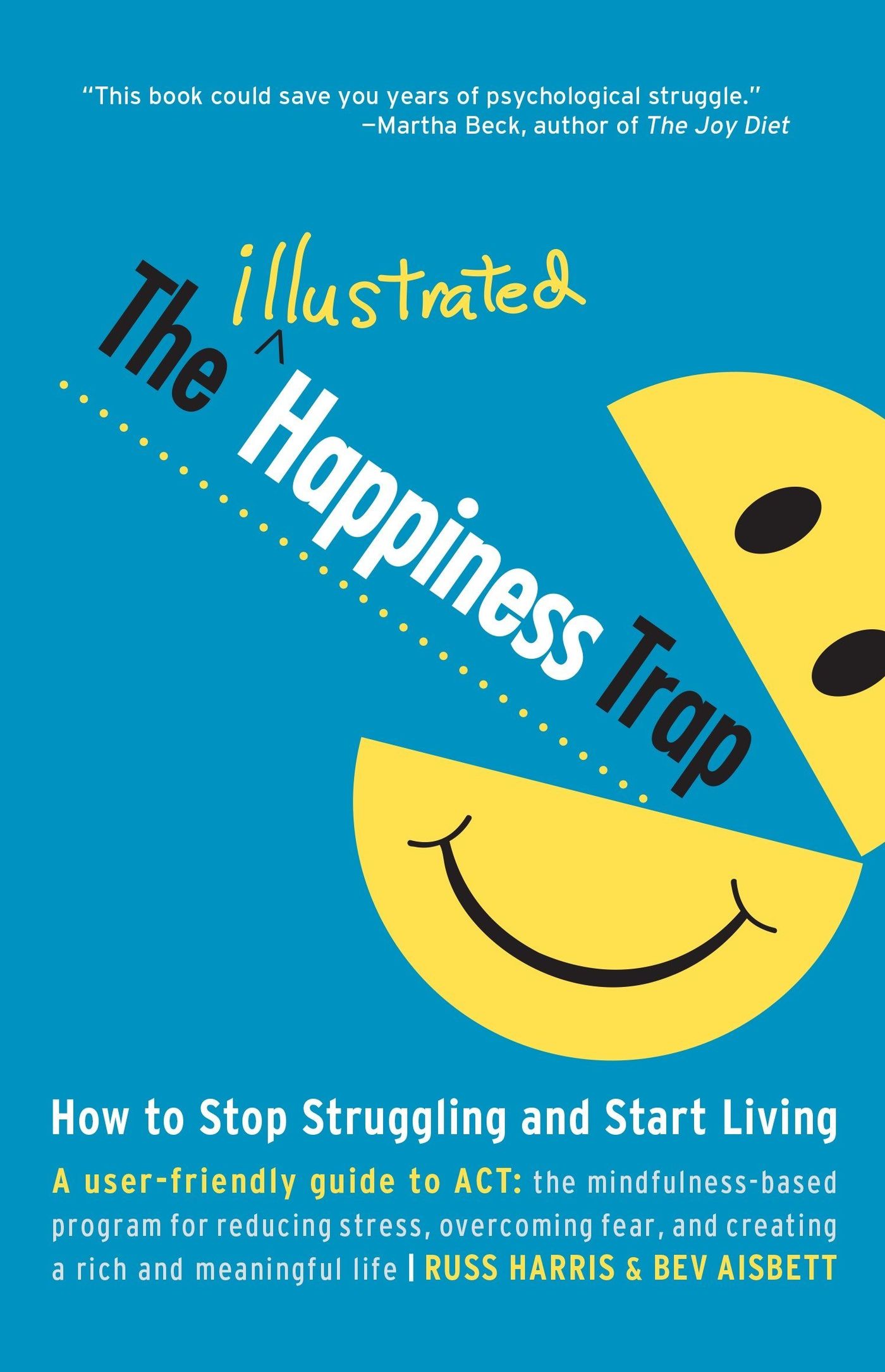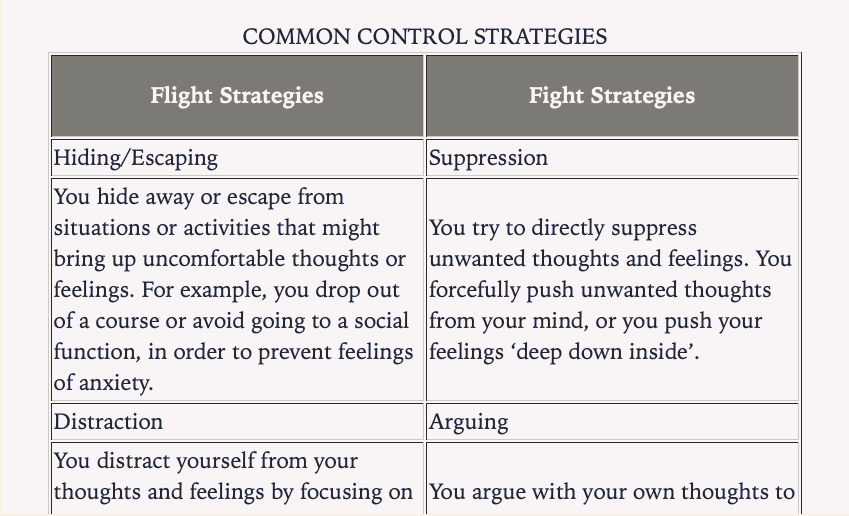
🌀回文詩人🌀 @字縛雜誌 Founder 書評外的話👉 https://liker.social/@MaryVentura
Book Review·Book Review|Out of "The Happiness Trap"🪤

Could happiness be a trap? This book by Russ Harris may seem like a headline-grabber, but in fact, it serves as a good guide on how to find direction and "happiness" in life. Mark Manson has long concluded in his million-selling book "The Subtle Art of Not Giving AF🫢ck" that the ultimate happiness we pursue does not exist, and life is just one buffering after another, pick your Battle, choose your battlefield! But if you and I are still struggling, how to choose, how to choose? "Happiness Trap" tells you.
I spent a lot of time reading this book, and until now, I still have some unfinished homework.
1. Data speaks
Russ told us that although many cultures emphasize the pursuit of happiness as the ultimate successful goal in life, and even many cultures tell us that people are born happy, this is not the case. Statistics show that one in ten adults has attempted suicide; one in five adults is troubled by depression. Even, according to statistics, the probability of you suffering from a mental disorder at some stage in your life is 30%. These are the same as 👆Mark's book "Simple Science". In fact, we are born with a lot of pain and sorrow, it depends on how we face it.
2. Problems and Solutions
In the first half of "The Happiness Trap", Russ provides readers with a questionnaire to determine where their problems are or where they will go wrong by answering the questions. For example, in order to achieve the so-called happiness and joy, how do we control our own thinking and how do we push away our feelings with the so-called voice of reason, including self-bullying-using our own methods to bully ourselves to make ourselves Let go of painful feelings... Many people's behavior patterns are learned in childhood, and it is difficult to realize them, let alone change them. The message many toxic parents convey to us is that it is not good to feel sad, it is not good to cry, and we must do everything we can to get rid of negative emotions. Over time, if we are not connected to our feelings, we will find that our bodies will send us more and more signals. However, the vicious cycle is that we have learned from childhood how to ignore our own body signals and instead consider others.
👇The incomplete screenshot shows the way to "solve" the problem by avoiding or resisting:

Neither of the above is a good way to solve the problem, because you still fail to face your emotions and feelings.
3. How should I escape the "happiness trap"?
Russ said the first step is to have a clearer sense of self. In fact, for me, it may be a picture of accepting a "happiness" family, having parents who love me, which is impossible to have, or it may be a very short time, that's all, I can't end it. He spent his whole life pursuing such a beautiful "phantom" that would never exist.
1. Delusion . A bit like demining. It's about trying a new way to connect with your thoughts so that your thoughts don't have an undue influence on you.
2. Expansion . Kind of like doing stretching exercises. Just try to accommodate your unpleasant feelings, sensations, impulses, etc., without trying to avoid any feelings or suppress them.
3. Connection . It's a bit like being connected to the world. Just try to live in the present, completely focus on what you are doing now, and don't get entangled in the past or worry about the future.
4. The Observing Self . This is different from dissociation. It feels like trying to "observe" yourself from an observation angle when you are usually relatively calm. For example, I am typing this article. My "observing self" is actually like a movie lens, observing what I am doing now from behind or from above. It feels a bit detached, but it is an active choice of my own will. What is the purpose of doing this? It's when "observing self" is observing what you are doing at the moment, no! meeting! go! Judge! All judgments that have been learned that are not friendly to one's own feelings will no longer exist. I did not use the term "God's perspective" here, although it may be easier to understand observing self using "God's perspective" to describe it. Observing Self is the "God's perspective" that does not judge your own current situation. This perspective may help us slowly distance ourselves from anxious feelings and learned self-deprecating voices.
5. Values . I think this is the most important point, which is what kind of values are worth protecting with your own actions. For example, if you clarify that the value you want to uphold in the family category is "honesty," then you don't need to hesitate between lying to your parents to protect their feelings. In "Value", the author gives many categories, such as family, self, intimacy, career, hobbies, etc. Each category requires readers to write down the values they hope to follow. I have been writing, but I haven't yet. Finished☺️
When a friend is in trouble, I will also ask her what her values are. If it is a family dispute, then according to her values, how does she want to treat her family members? Is it "keeping honest" or "protecting the family at all costs"? "Member feelings" is the value. If it is the latter, then the friend will easily choose to lie. But no matter what, as long as you finally make a choice based on your own values, you will be less entangled and unable to make a decision.
6. Committed Action . Just do it!
4. Summary
Personally, I don’t like psychology self-help books like workbooks very much, but after reading this book, I still follow the requirements in the book and do it one by one. It will really make a difference, even if I don’t finish everything (actually it is Many answers change over time, but Value rarely changes significantly), and you can also feel that you will feel calmer when encountering things.
I've been overwhelmed with things lately, and I thought of this book, which seemed to be a beacon of light that helped me sort things out in my complicated life. Slowly I discovered that if we don’t feel it, we will indeed have many unconscious reactions. When encountering things, we will automatically respond according to the survival mode set by our parents, which will also create a series of pain and struggles that follow. . Use this book to slowly reflect on these preset reactions, adjust them, and write down the values you are willing to follow. ACT!
桃花潭水深千尺,不及讀者送我情❤️❤️❤️
Comment…